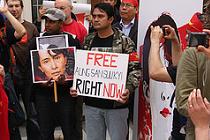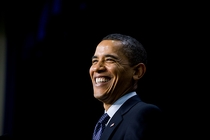Neelam Deo
Director, Gateway House
Neelam Deo has served as the Indian Ambassador to Denmark and Ivory Coast with concurrent accreditation to Niger, Guinea, and Sierra Leone. She has also served in the Indian embassies in Rome, Bangkok and Washington D.C., where she liaised with the U.S. Congress, the State Department, and the National Security Council on strategic issues. Her last assignment was as Consul General in New York from 2005 to 2008.
During the course of her assignments in the Ministry of External Affairs, she held the position of Joint Secretary for the divisions dealing with Bangladesh, Sri Lanka, Myanmar and the Maldives. At different times over the course of her career, she has dealt with Bhutan, South East Asia and the Pacific, as well as countries in West Asia and North Africa.
She is an invited speaker on strategic issues and India-U.S. relations at numerous think tanks and universities, in India, Europe and the United States.
Apart from her articles and commentaries written exclusively for Gateway House, Neelam occasionally writes for mainstream publications, and is a frequent commentator for television news channels.
She has a Master’s degree from the Delhi School of Economics and serves on the Editorial Advisory Board of the Indian Foreign Affairs Journal.
She is also a member of the board of Oxfam India and is a trustee of Breakthrough (a human rights organization).
She is an independent director on the boards of Mahindra CIE Automotive Limited and Mahindra Defence Systems Limited.
Expertise
Africa, Foreign Policy, India's Bilateral Relations, USA
Last modified: August 11, 2017
Recent projects
 Courtesy: James Stencilowsky/ Flickr
Courtesy: James Stencilowsky/ Flickr
Myanmar is a complex issue. Its history, its treatment by neighbours and the West, the complex dilemmas posed by the mixing of morality and realpolitik is a reminder that democracy is only a means to an end. The lives of the ordinary people should matter more than formal institutions in shaping policy decisions.
 Courtesy: WhiteHouse/Flickr
Courtesy: WhiteHouse/Flickr
What can India expect from President Obama’s visit? Ambassador Neelam Deo tackles the laundry list of issues that confront Indo-US relations.
 Courtesy: Shaid Khan
Courtesy: Shaid Khan
The arguments in a slim compilation of essays on peace, though they do not deal specifically with the Ayodhya matter, bear upon the issues this long-running dispute is forcing us to confront.





